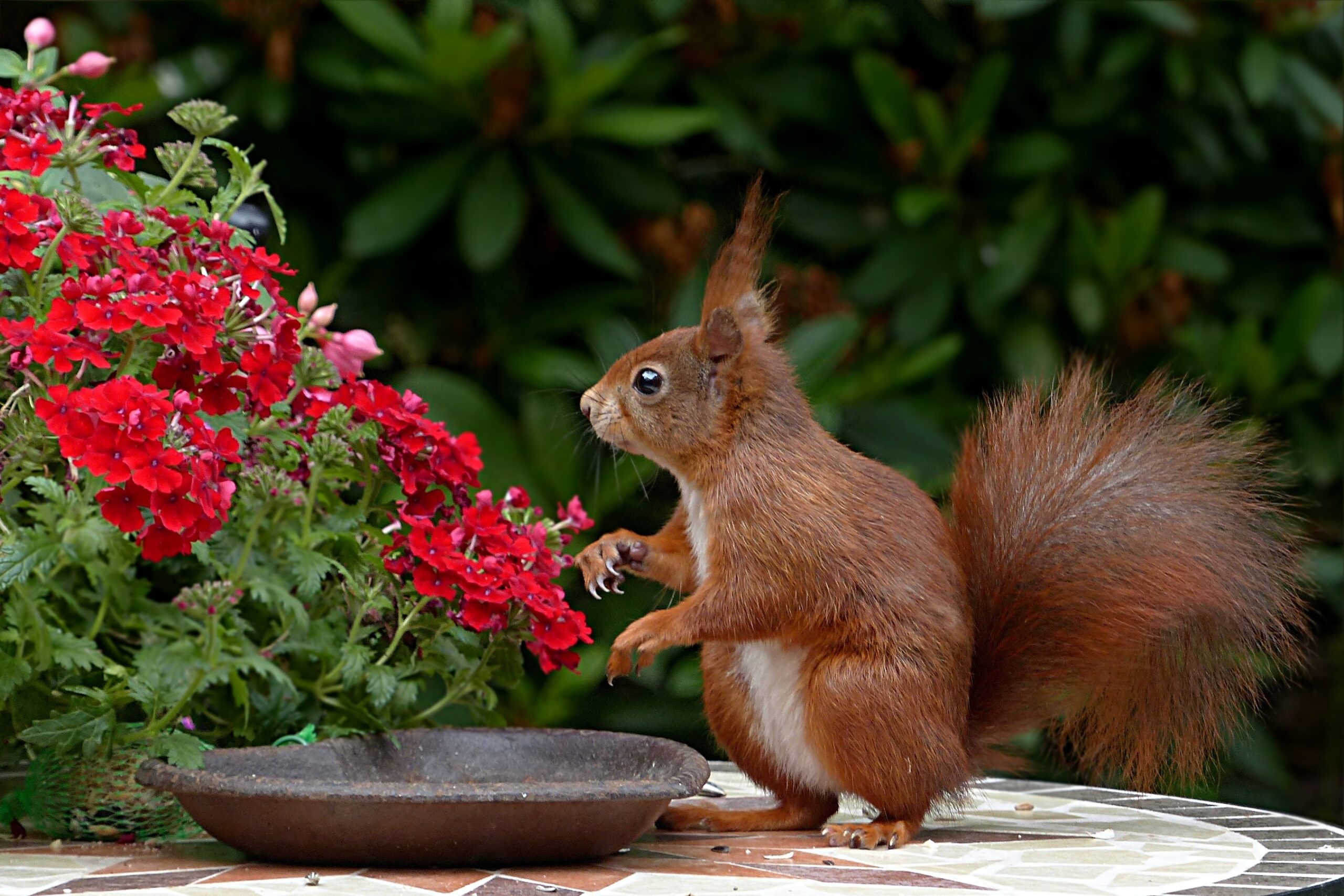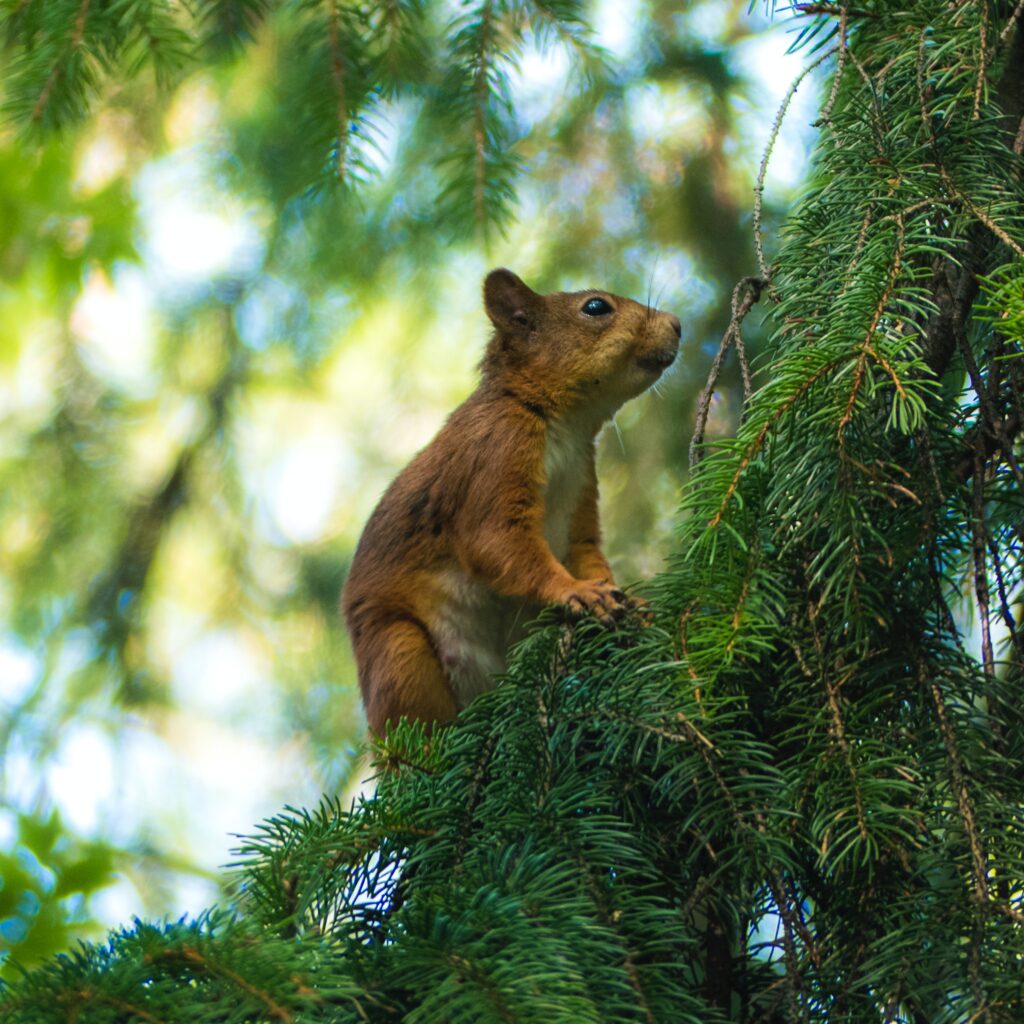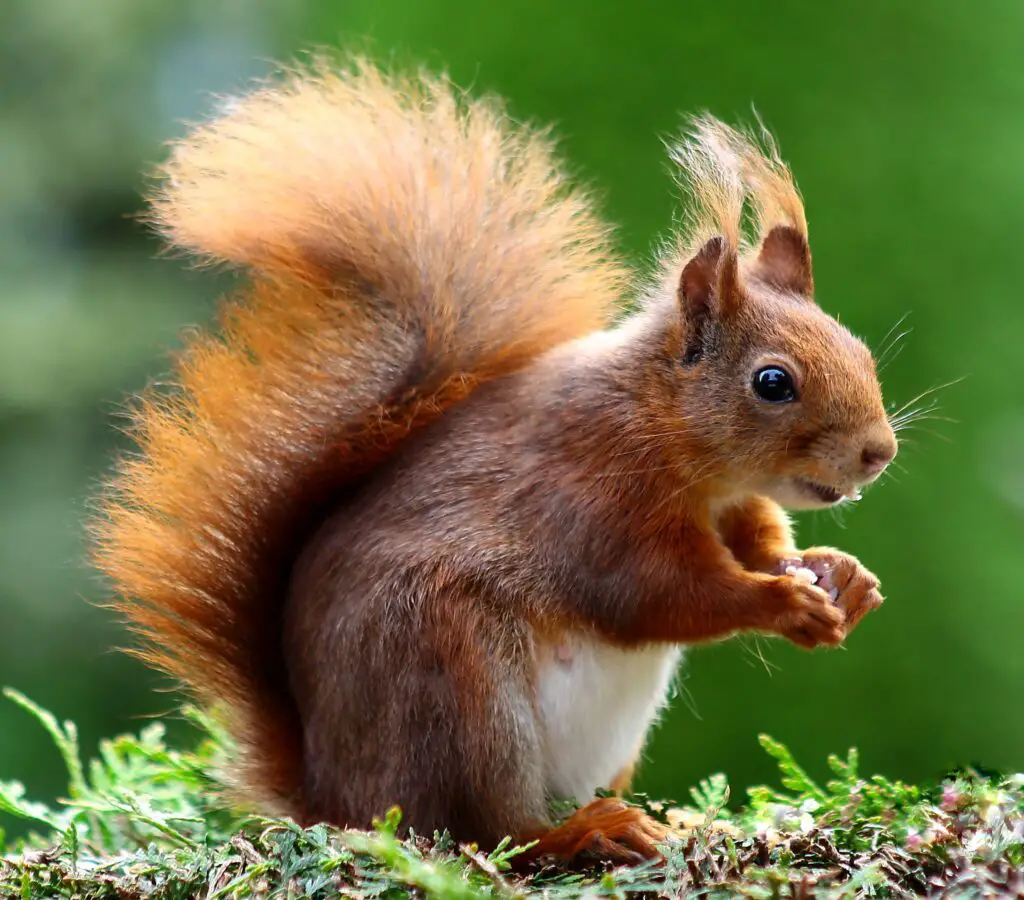Are squirrels nocturnal? You may have seen a squirrel or two hopping around your yard, but will these bushy-tailed rodents stay up throughout the night? In this article, we answer these questions and discuss everything you need to know about squirrels and their waking and sleeping habits!

Table of Contents
Are Squirrels Nocturnal?
Squirrels aren’t nocturnal. They’re, in fact, somewhere between diurnal and crepuscular.
Ground, chicory, and tassel-eared squirrels are all diurnal. This means they rise early, roam around as long as the sun is out, and get their rest at night.
Other squirrels like the Grey Squirrels are considered crepuscular because they lay low midday and have a peak in activity at dawn and dusk. That’s assumed to be a habit that they’ve adapted to with time so they can avoid serving as their predator’s lunch. They could certainly wake up at night to eat or drink, but that’s a rare sight.
The only exception to this rule is flying squirrels, which are nocturnal. They choose to glide and parachute their way from one tree to another strictly at night. Flying squirrels have a patagium, which is a membrane attached at the four ends of their limbs. When the squirrel spreads its limbs, the patagium makes it look like a kite with a tail.
The Difference Between Nocturnal and Diurnal Squirrels
 A diurnal squirrel’s eyesight is made for sunlight. They have a sheen of yellow UV pigment covering their lens that acts like natural sunglasses to keep the sunbeams at bay. They also have a dichromatic vision, which helps them differentiate between colors.
A diurnal squirrel’s eyesight is made for sunlight. They have a sheen of yellow UV pigment covering their lens that acts like natural sunglasses to keep the sunbeams at bay. They also have a dichromatic vision, which helps them differentiate between colors.
Nocturnal flying squirrels, on the other hand, lack these characteristics. Not to mention, they have incredibly huge eyes and a rod-dominated retina with a rod density of nearly 100%. These features allow them to navigate the darkness of the night with ease. In comparison, diurnal and crepuscular squirrels have a cone-dominated retina with only 10 to 40% rod density.
Squirrels, in general, have superior eyesight. Their whole surrounding is sharp, unlike humans, who merely have a relatively small focus area, with the rest of their peripheral vision blurred. This allows squirrels to hunt for food and react promptly to any sudden threats.
This wouldn’t be the case if squirrels were active at night.
Flying squirrels are aided in their night-time excursions by their ability to “fly” which protects them from the dangers a ground squirrel would face at night.
Where Do Squirrels Spend the Night?
Since squirrels don’t spend the night wandering the earth, you might be wondering where they end up at night.
Ground squirrels sleep in burrows they dig in the ground. They’re basically tunnels that extend up to 30 feet in length. They sometimes even escape the cold winter and hibernate in their little dugouts.
Tree squirrels build their own dreys on tree branches or in attics. They make it from moss, leaves, and twigs that they collect. Some of them, however, don’t bother with dreys and find themselves a hollowed-out cavity to lay their weary head.
Flying squirrels seek out tree cavities to sleep in. Sometimes flying squirrels end up on a tree branch or in a home attic.
Reasons Why a Squirrel Would Sneak into Your Attic
Squirrels could make a home out of your attic if they feel unsafe in their surroundings, or if the weather is especially harsh.
Squirrels generally don’t fare badly in rain. Their nests are built to withstand rainstorms and to keep them safe. They also use their tails as a shield from the rain, cowering underneath it.
That being said, if it’s heavy rain, even their bushy tails might not be enough to protect them, and so they choose your home as a shelter.
Can a Squirrel Damage Your Home?
 Let’s just say having a mouse on the loose at home won’t be any different from a squirrel; in the end, they’re both in the same family of rodents.
Let’s just say having a mouse on the loose at home won’t be any different from a squirrel; in the end, they’re both in the same family of rodents.
Squirrels can gnaw at your wood, metal, insulation, and furniture. Even worse, they can chew into your wires and utility lines, causing power cuts or even fires. They can also steal the fruits and vegetables in your precious garden.
If you’re certain there’s a squirrel roaming freely in your house, make sure you contact an exterminator to help you get rid of the squirrel humanely.
Is a Squirrel in Your Attic?
Although it isn’t uncommon for squirrels to sneak their way into a house, there’s a big chance it’s not a squirrel you’re hearing.
Squirrels spend a long part of their time sleeping — almost 15 hours a day. In hot temperatures, they estivate or stay dormant for long periods. In winter, ground squirrels hibernate, while flying squirrels coop up and become less active. They slow down their heartbeat, metabolic rate, and decrease their body temperature.
With that in mind, if there’s a lot of activity in your home, chances are squirrels aren’t the ones behind it.
If the noise is heard at night, you can rule out squirrels entirely. After all, flying squirrels are the only nocturnal species of squirrels, and they don’t make a lot of loud noises. In fact, research has shown that flying squirrels use ultrasound frequencies to communicate, making them too high-pitched to be picked up by human ears.
What Sounds Do Squirrels Make?
If you’re trying to determine if your unwelcome visitor is a squirrel, you might want to keep track of the noises you hear. Noises you’re likely to hear are the sounds of chewing and scratching around the house.
Squirrels sometimes screech in a high-pitched sound. Other times, they chirp, squeak, or even make sounds that resemble a cat.
Final Thoughts
Are squirrels nocturnal?
Squirrels don’t strictly adhere to a particular sleeping schedule. Ground and tree squirrels are diurnal and crepuscular while flying squirrels are nocturnal.
Their physical adaptations have set them apart, each with their own set of features that help them get through their days.
They not only differ in their sleeping habits but in their resting places, as well. Some choose to burrow in the dirt, whereas others built nests, and the rest like to find tree cavities to squeeze into.